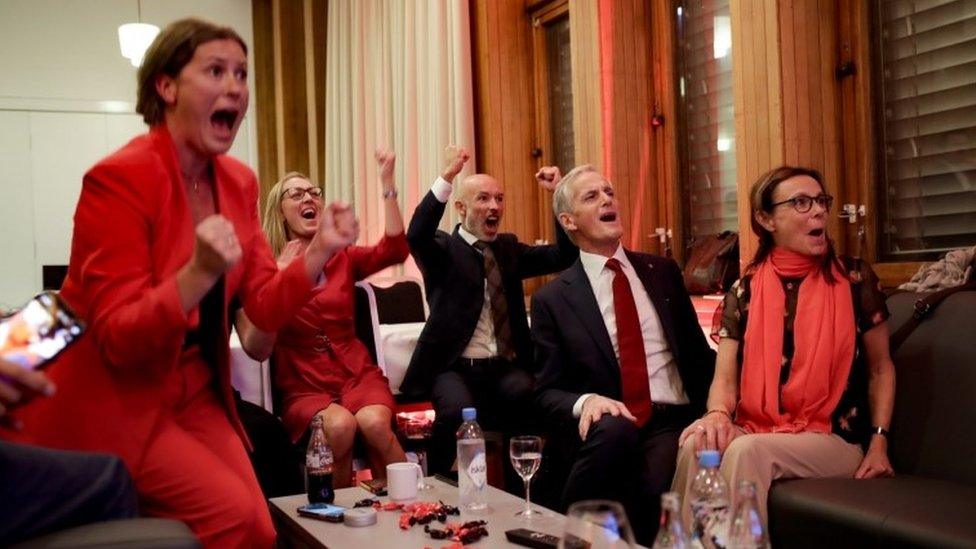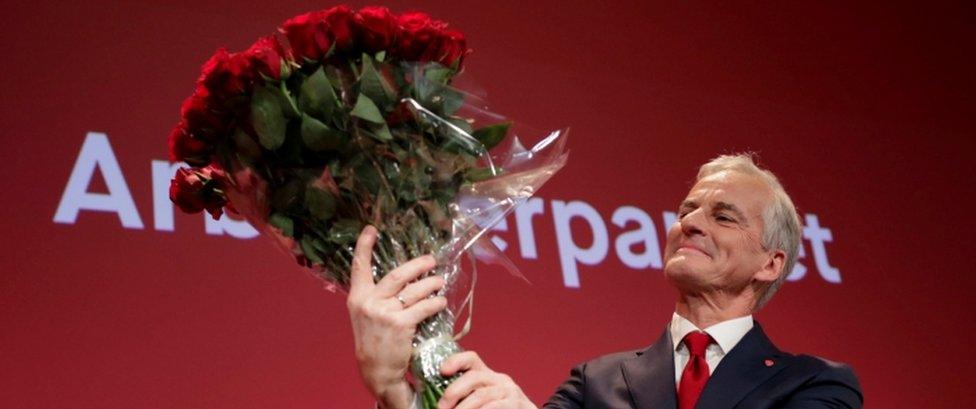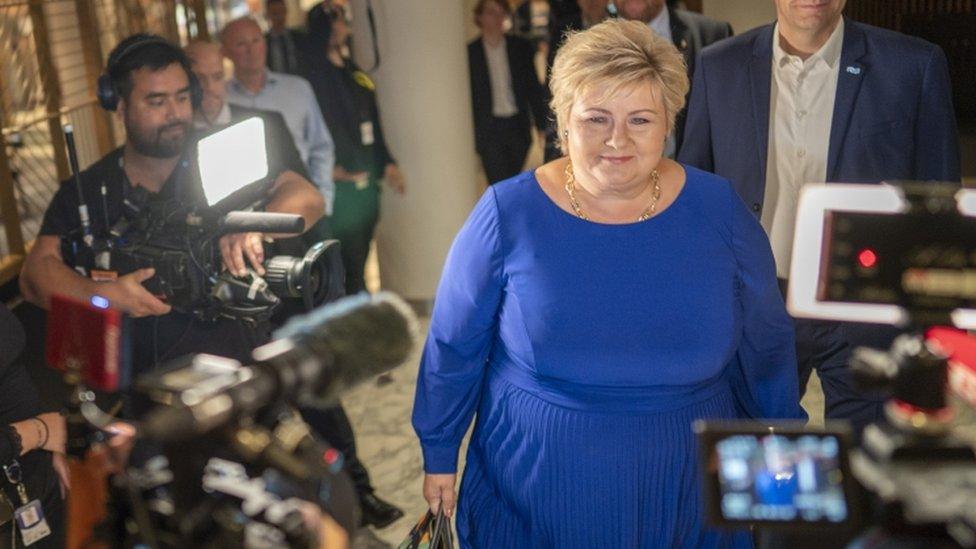Norway's centre-left defeats Solberg's conservative rule
- Published

Labour Party leader Jonas Gahr Stoere (seated at front) will now try to form a coalition
The opposition Labour party has won Norway's general election, bringing an end to eight years of conservative government under Erna Solberg.
The prime minister has conceded victory after Monday's election, paving the way for a centre-left coalition.
"We did it," said Labour leader Jonas Gahr Stoere, who will now try to form a government.
The campaign in the run-up to the vote was dominated by climate change and Norway's oil industry.
Norway's biggest export is oil and the green party campaigned to close production down in a few years to curb the country's carbon emissions.
A Stoere-led government will mean that all the Nordic countries are governed by Social Democrat centre-left parties.
Labour won 48 of the 169 seats in parliament, which is one seat less than in 2017, but Ms Solberg's Conservatives lost nine seats and now have 36.
Mr Stoere is now expected to enter coalition talks with Labour's preferred allies, the Centre Party and Socialist Left, to secure a majority in parliament. The largely rural Centre Party was one of the night's biggest winners with 28 seats.
PopulationAbout five million people
Area385,155 sq km (148,709 sq miles)
CapitalOslo
Biggest exportOil - 40% of total
GDP$362bn (£308bn) in 2020
Form of governmentConstitutional monarchy
"As the biggest party, we will make sure that Norway will get a new government and a new course," the Labour leader said in a speech to party members.
"In the coming days, I will invite the leaders of all parties who want a change."

Who is the Labour leader?

A political science graduate, Jonas Gahr Stoere was a high-ranking civil servant under several prime ministers from 1989 to 1997
He served as minister under former Prime Minister Jens Stoltenberg
In a campaign focused on "ordinary people", Mr Stoere pledged to address economic inequality and improve public services by hiking taxes for the rich
But as a millionaire from a wealthy family, his own finances came under scrutiny. His fortune comes from the sale of a family stove manufacturing company in the 1970s

Ms Solberg's Conservatives and their allies fell well short of a majority, winning only 68 seats.
Congratulating her rival she said Labour "seems to have a clear majority for a change of government".
In power since 2013, she pushed a more pragmatic vision for Norway, earning the nickname "Iron Erna".

The result ends eight years of conservative government led by Ms Solberg (R)
In office, she oversaw the tightening of immigration controls and favoured lower taxes to boost economic growth.
She steered Norway through the Covid-19 pandemic but, while the country fared relatively well, she nevertheless faced a backlash over economic inequality and unpopular public sector reforms.
In April this year, the prime minister was fined by police for breaking social-distancing rules at her birthday gathering, further damaging her reputation.
Related topics
- Published4 June 2021

- Published4 November 2020
